
PLECOSDwarf&Bristlenose Yep, some make great algae eaters, and they are some of the toughest
August 22, 2023 by Tommy You're an aquarist who wants to provide the best care for your pleco fish. But how can you make sure you're giving them what they need if you can't even identify them accurately? Proper identification is essential for their well-being.

Types Of Plecos Which One Is Right For Your aquarium Tank? [Care Guide]
Origin Plecostomus catfish are found in freshwater rivers and streams in South America and West Africa. Plecos can withstand a range of water parameters in the wild and in captivity. Plecos live in fresh and brackish water and survive seasons of drought by storing oxygen in their bellies and breathing through their skin.

[Ichthyology • 2017] Multilocus Molecular Phylogeny of the Ornamental Woodeating Catfishes
Zebra Pleco Hypancistrus. A Plecostomus fish has healthy eyes, always active at the bottom of the aquarium, eats continuously, cleaning the aquarium glass and other objects. Don't overcrowd your tank, a common pleco fish can be stressed. Water should be changed regularly. Do set up a proper filtration in your fish tank.

TOP 14 TYPES OF PLECO PLECOSTOMUS FINDING FISHES YouTube
What Are They? Plecos are armored catfish from the Loricariidae family. The word pleco is short for plecostomus, which is actually the name of just one well-known fish from this group. Plecos range in size from small fish of about 3 inches, right up to monster fish that can grow over two feet!
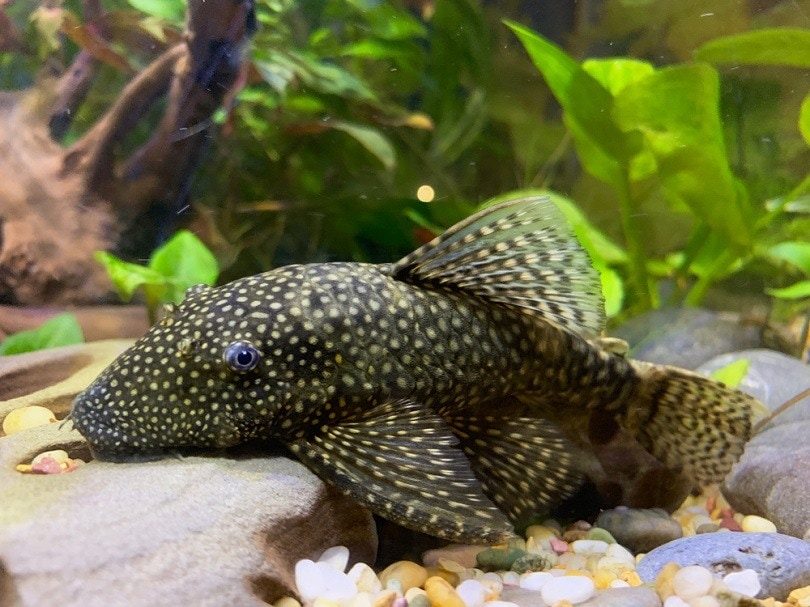
Bristlenose Pleco Care Guide, Size, Varieties & Lifespan Hepper
Table of Contents List Of Pleco Identification Chart Top 15 Types Of Plecos 1.Bristlenose Pleco (Ancistrus Cirrhosus) 2.Clown Pleco (Panaqolus Marcus) 3.Gold Nugget Pleco (Baryancistrus Sp.) 4.Royal Pleco (Panaque Nigrolineatus) 5.Snowball Pleco (Hypancistrus Inspector) 6.Zebra Pleco (Hypancistrus Zebra) 7.Leopard Frog Pleco (Chaetostoma Formosae)
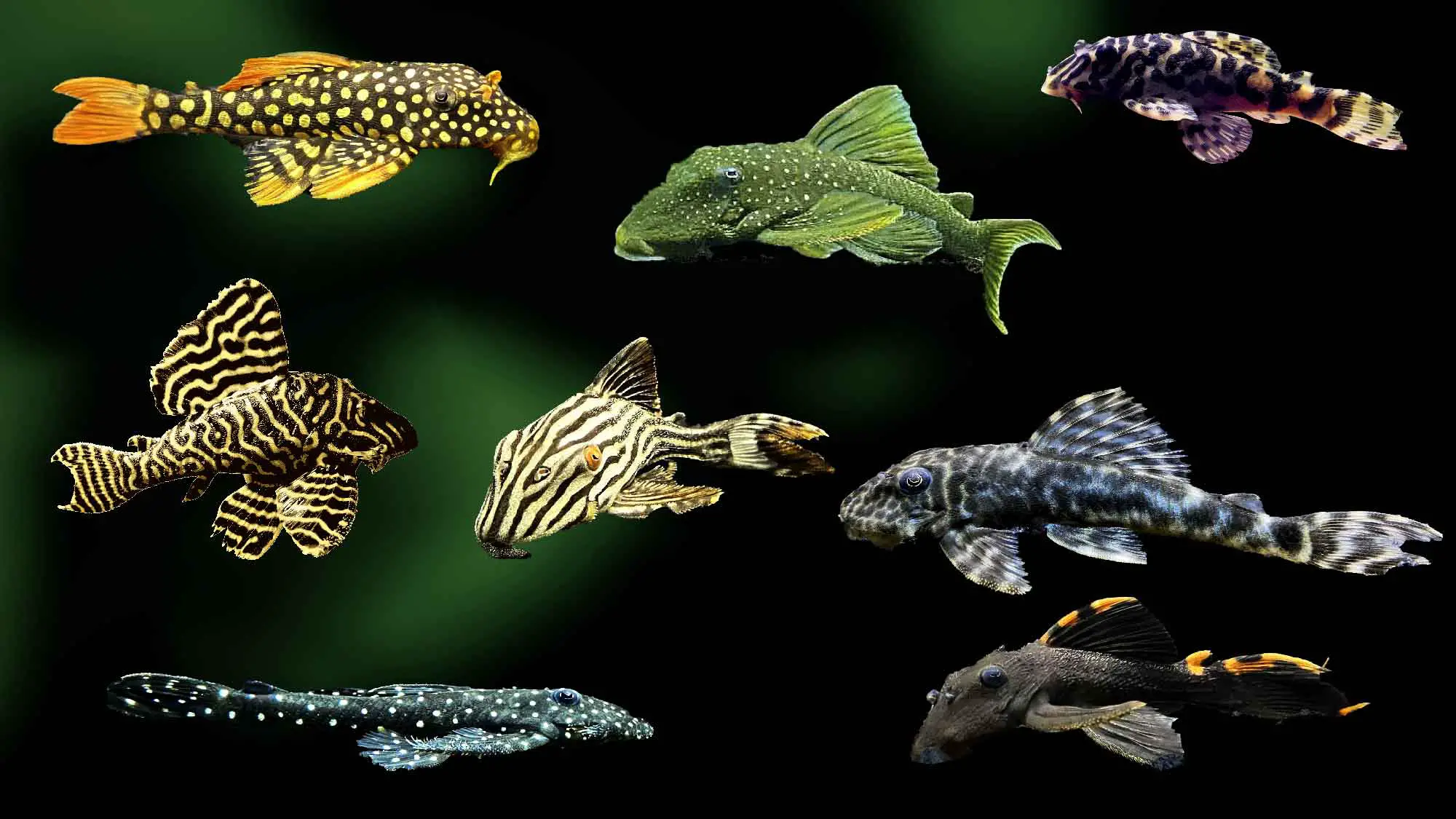
17 Most Beautiful Types Of Plecos
Common Pleco: Complete Guide to Care, Breeding, Tank Size and Disease. Written by Adam Edmond Reviewed by Editorial Team. Updated on May 2, 2022. By Adam Edmond Belonging to the Loricariidae family, Common Plecos or Plecostomus are a species of armored catfish. Primarily found in South America, this family of catfish is the largest in the world.

Posters Phylogeny Of The Clown Pleco Genus Panaqolus ATS
Activity Nocturnal and active at night Temperament Varies as the catfish mature; juveniles may be shy and mellow, but adults are often aggressive and territorial Tank Level Mostly bottom-dweller but may use the entire tank in adulthood Minimum Tank Size 75 to 150 gallons per catfish Temperature Range 72 to 86°F Water Hardness

the different types of fish are shown in this image, and each one has an individual's name on it
Availability The sailfin pleco is a commonly available catfish species that can be found in pet stores and online. Online stores are most likely to sell this fish species, for the average price of $12-$20 per fish. Popular stores selling sailfin plecos are: LiveAquaria Imperial Tropicals Aquaticarts (albino sailfin pleco) Appearance & Behavior
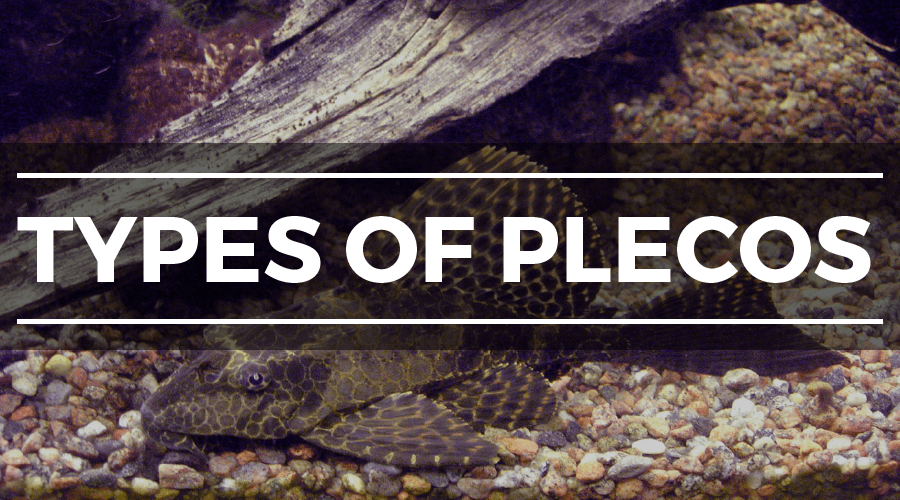
10 Common Species of Plecostomus Pleco Types & Care Guide
Table of Contents Pleco Types Bristlenose Pleco (Ancistrus Cirrhosus) Clown Pleco (Panaque Maccus) Zebra Pleco (Hypancistrus Zebra) Common Pleco (Hypostomus Plecostomus) Rubber Lip Pleco (Chaetostoma Milesi) Gold Nugget Pleco (Baryancistrus Xanthellus) Blue Phantom Pleco (Hemiancistrus sp. L128) Royal Pleco (Panaque Nigrolineatus)
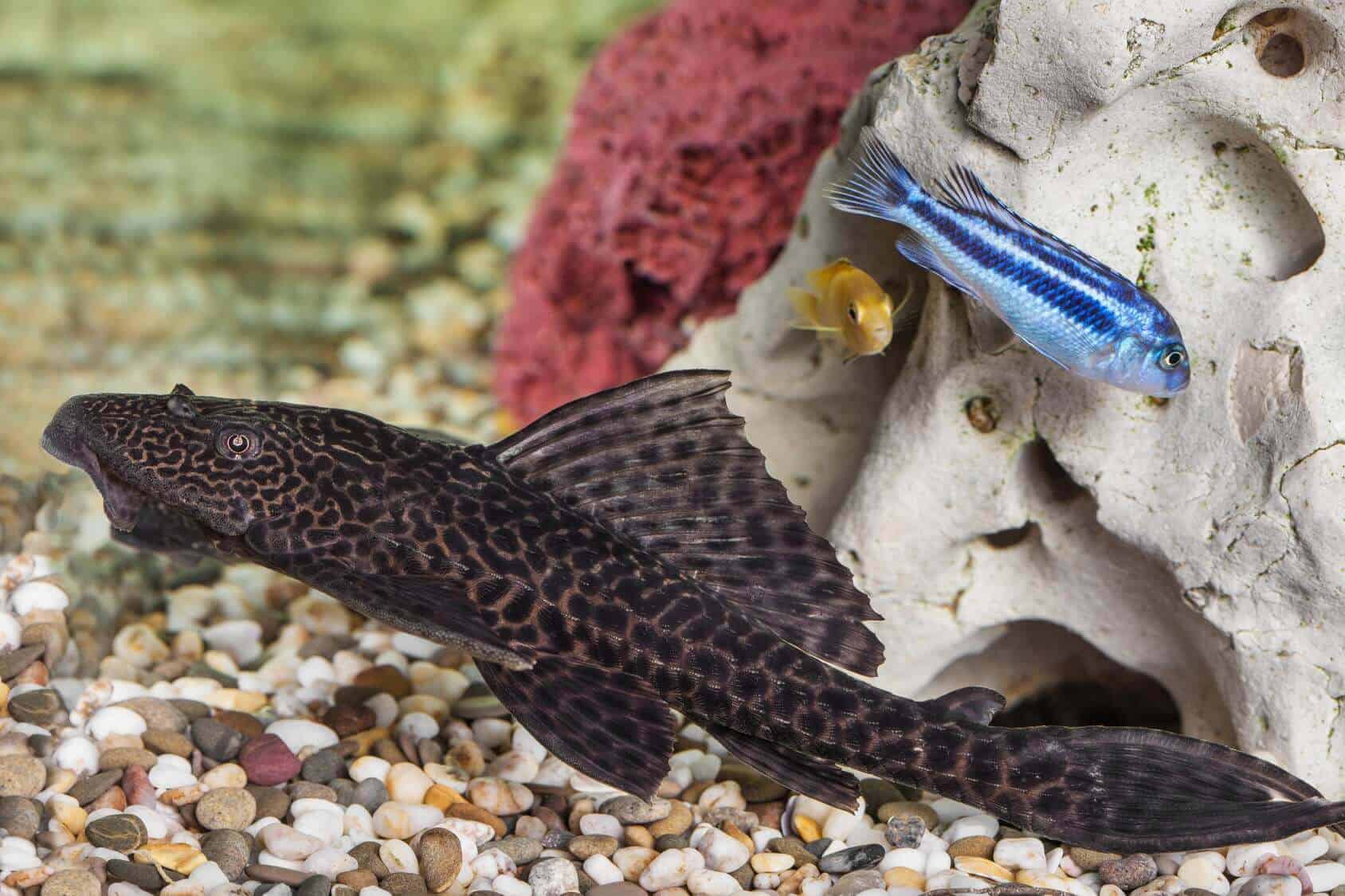
Plecostomus Care Guide, Facts & Species Profile
Explore a diverse array of Pleco species and types in this detailed guide. From the popular Bristlenose Plecos to the rare and fascinating species, learn about their unique characteristics, care requirements, and ideal habitats. Whether you're a seasoned aquarist or a newcomer, this comprehensive resource will help you choose the perfect Pleco species for your aquarium and provide them with.

Pleco Types List of Top 20 Types of Plecos
April 20, 2023 Contents show Ever wanted a vacuum cleaner for your aquarium? Let me introduce you to the Common Pleco (Hypostomus plecostomus) - a fish that not only does a great job of keeping your tank clean but also looks cool while doing it. So, strap in and let's explore the exciting world of plecos! The Common Pleco Lowdown
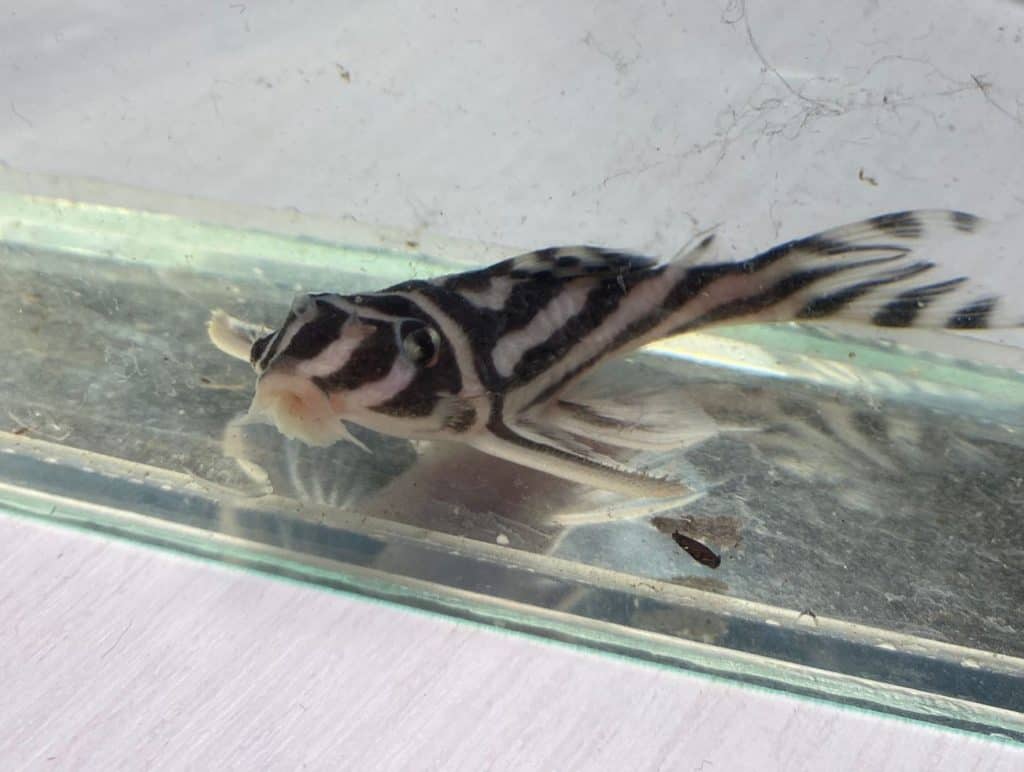
What Type of Pleco Do I Have? (Identification Guide) Keeping Catfish
1. Zebra Pleco. Size: 3-4 inches. Appearance: Alternating black and night stripes. Tank size: 30 gallons. Zebra Pleco. This kind of pleco is endemic to Brazil, especially along the Bug Bend of the Xingu River. While Zebra Pleco is a bottom-dwelling type of fish, it's a stunner that's a head-turner.

10 Common Species of Plecostomus Pleco Types & Care Guide
The 12 Types of Plecos: 1. Zebra Plecostomus Image Credit: Pavaphon Supanantananont, Shutterstock These are striped plecos that resemble a pattern similar to a zebra, hence their name zebra plecos. They add an interesting addition to your tank and an eye-catching tank cleaner fish for your tank. They grow to 3.5 inches at max.
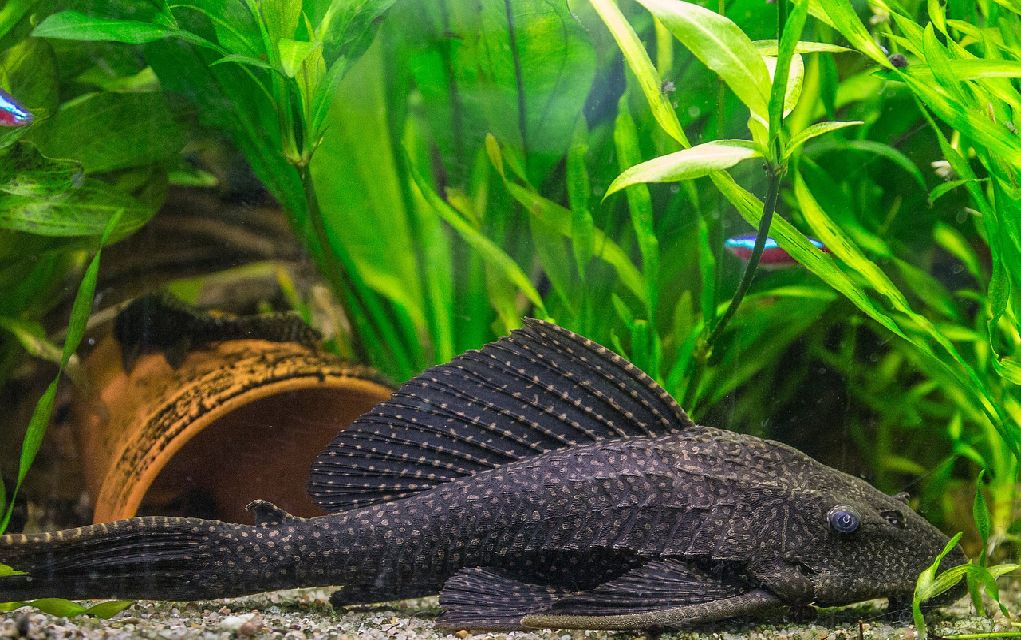
10 Common Species of Plecostomus Pleco Types & Care Guide
The correct identification of the pleco fish we are keeping will directly dictate our handling of the fish. Only then will we know how to create and maintain the proper environment, proper nutrition, and specific compatibility and health care. How to identify your pleco Achieving accurate identification

Pleco Size Chart My XXX Hot Girl
There are more than 150 different species of Pleco that have been discovered, and almost all of them shouldn't be kept in an aquarium. Here are 10 types of plecos you should be aware of and what type of aquarium they require. 1. Common Pleco ( Pterygoplichthys pardalis) Size: 18-24 inches (46-61 centimeters) Min. tank size: 100 gallons (379 liters)

Different Types Of Plecos Fish, Freshwater fish, Tropical fish aquarium
All species of this genus share the whitish-grey base colour with black spots, which is almost sufficient to identify this genus. Additionally, males grow heavy odontodes covering the whole body during spawning season, considerably heavier than is found in certain Peckoltia species.